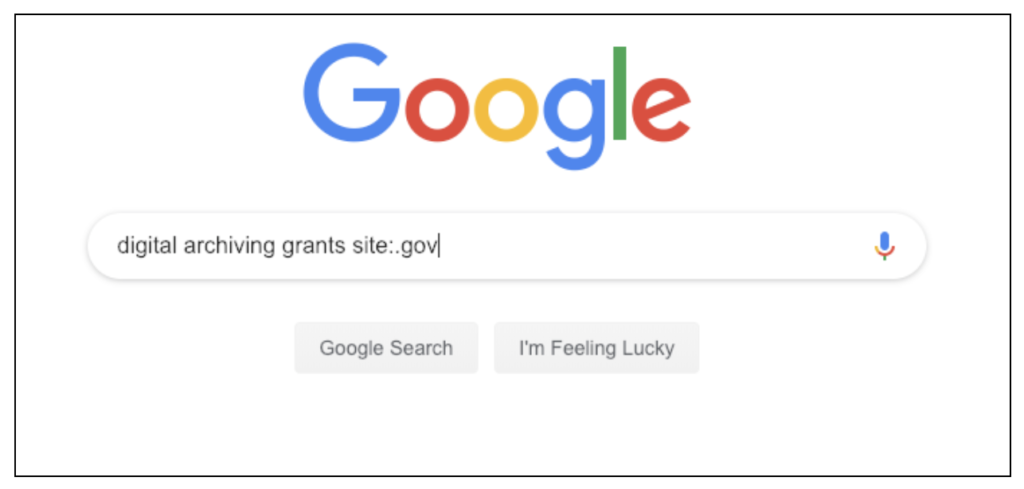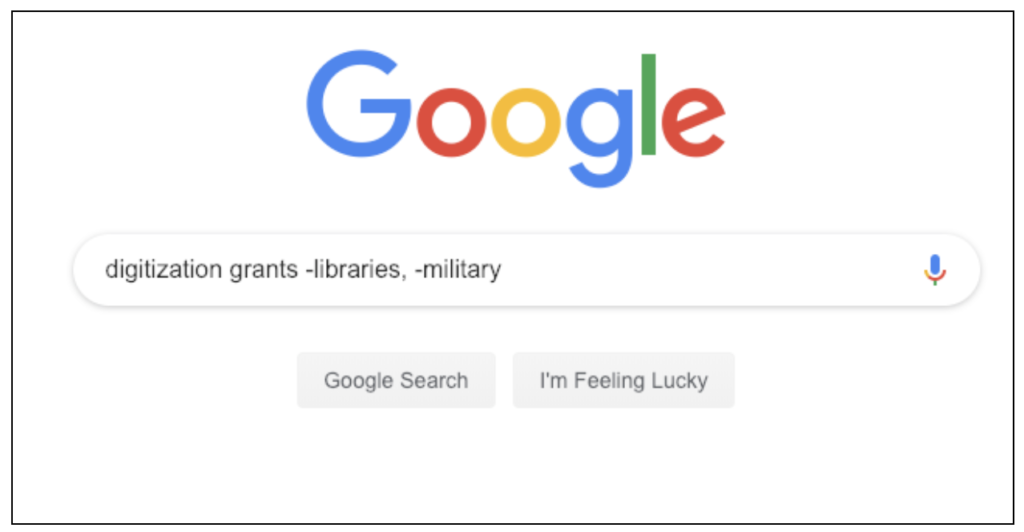How To Fund A Digital Preservation Project
Digitally preserving your books, reports, records, and documents is a lot of work, and your staff’s time available for managing such projects is limited. Depending on the size of your organization and the volume of records you produce, you may need to partner with a third party like BMI to execute an efficient and successful digital preservation project.
If you’re a school, library, public entity, or nonprofit, you may not have access to financial resources to help pay for your digital archiving project. Some for-profit entities such as newspapers may also qualify for underwriting of their digitization projects. Read on to learn how to search for digital preservation funding sources and what to look for as you evaluate your options.
How To Search The Internet For Digital Preservation Funding
Where do we go when we want to search for anything? The internet.
For the sake of this article, let’s assume you’re using Google.
You can use Google or another search engine (Bing, Yahoo, or whatever search engine you prefer) to look for funding resources. Google has been indexing web content for more than 20 years, so its algorithms are good at delivering content that’s relevant to your search terms. For instance, if you search for “digitization,” Google knows you might also be interested in “digital transformation” and “digital document archiving.”
Here are some keyword phrases you might search for:
- grants for digital archiving, digital archiving grants
- digitization grants for archives (add the year to try to narrow the results to the most current)
- preservation assistance grants
- digital document archiving
- funding sources for library digitization
- partnerships for digitization
Google has some cool search limiters, which help you narrow the results. For instance, if you want to search only government resources, you can tell it to search for only .gov sites.

You can also use search filters to refine Google searches. Use a minus sign to remove certain words, as in this example, which searches for digitization grants for organizations other than libraries and military.

Use the search filters under the search field to further narrow your results by time (we recommend selecting “past year” to get the most recent sources), geographic location and format.
Searching Google can be like opening a fire hose of information, though. There are other resources to check regularly for funding your digitization project, which is what we’ll cover next.
How To Find Grants
US Government Grants
If your digitization project benefits the public, you may be eligible for government grants. The US government awards billions of dollars every year to private and public sector organizations. To get started, go to grants.gov and use the search function to explore grant opportunities.

State & Local Government Grants
Don’t limit your search to federal grants, which is likely looking to fund projects that have a national, broader impact. Look for local funding sources as well. Like Grant Writing for Dummies says, the odds of winning a local grant are better than at the federal level, because fewer organizations are competing for the funds.
That said, Dummies points out that finding those state and local grant opportunities can take some work, but they offer tips:
- Visit the state’s website and search for grant opportunities.
- Email or call the governor’s office and ask to be directed to agencies that offer grants.
- Get on mailing lists for grant-funding opportunity alerts.
- Use the same tactics to search your local government agencies.
Non-Governmental Grants
Now you’re getting into some real detective work, looking for funding sources outside the US, state and local governments, so this section will help you get started.
- Board of directors — if you are a larger organization or a nonprofit, start by reaching out to your board of directors, who may be connected to foundations and local corporations that control funds.
- Grantmakers near me — We’re sending you back to Google for this one. Search “grantmakers near me” to find regional philanthropic organizations that may fund digitization projects.
- Fee-based grant resources — If time and resources are limited, you may consider paying for a service that helps you find grants for your digital preservation project. Do your due diligence when vetting these companies. The $40-$45 monthly subscription fee may seem reasonable, when you’re looking for tens of thousands — or more — in funding; however, they may also try to upsell you with grant writing, grant training and other service. We’re not saying these services don’t have value; if you don’t have staff in-house to do these tasks, it may make sense to outsource them.
Sources for Digital Preservation Funding
Here are a few agencies you might check. This list isn’t exhaustive, and the grant opportunities change all the time; check their websites often.
- National Historic Publications & Records Commission (National Archives)
- Society of American Archivists
- Gallery Systems (resources for digitizing arts and humanities content)
- National Endowment for the Humanities
- Northeast Document Conservation Center
- Andrew W. Mellon Foundation for Preservation and Conservation
- Knight Foundation (journalism, community and arts funding)
- Institute of Museum and Library Services
- Council on Library and Information Resources
- National Digital Newspaper Program
Tips For Grant Applications
For this section, we collected tips from a number of resources, including our own clients who’ve successfully applied for and won grants to fund their digital preservation projects.
- Start early. Don’t wait until the last minute to apply for a grant. Request guidelines and background documents from the grantor (the organization that’s awarding the funds), or look for it on their website.
- Be responsible. Show the grantor that you will be responsible for the way you spend your grant money. For example, don’t wait to the last minute to submit your application and use expensive overnight shipping methods. Show evidence of fiscal responsibility.
- Follow specifications. Follow the foundation’s instructions to a T, and don’t send more information than they request. Follow their requirements for document size and type, fonts, formats and anything else that’s required, even if it seems trivial. A grantor can reject an application for something as simple as exceeding the character limit or using the wrong file name.
- Tell a good story — but be concise. Follow the “show, don’t tell” rule of content creation. Use statistics, case studies, testimonials and facts. Get to the point without using a lot of flowery words.
- Understand your target audience. Explain jargon terms that the grant’s reviewers may not be familiar with, and organize your application in a logical and easy-to-follow format. Give reason for your grant; identify the problem or need it solves.
- Estimate your timeline and budget. The grantor will want to know how you’ll spend the funds, and you’ll likely have to send monthly accountability reports to the grantor. BMI can help you create a conversion process flow, which will help you determine how much money you will need and how long the project will take.
How To Sniff Out Grant Scams
As with anything that involves transactions of money, scam artists are alive an well in the grant-writing space. Use common sense when applying for grants. Here are warning signs that a funding source may not be legit:
- The Grantor is charging you for an application.
- The grantor approached you, out of the blue.
- The application asks for your personal or company bank account information.
- You receive a notice saying you’ve been approved for a grant — that you never applied for.
- The grant doesn’t require an application.
Next Steps – Get In Touch
BMI has been providing local, state, and federal government agencies with secure document conversion and management solutions since 1958. Get in touch with us today so we can help you estimate the scope, timeline, and budget for your digital preservation project.
Are you part of the Education sector? Check out our Education page to get more information about a project we can work with you on.
Contact us with your digitization and digital preservation project questions.



